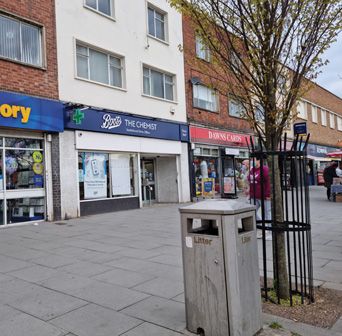Now on desks is the June print edition of Professional Security magazine. As ever we’ve tried to be as up to date as we can be, with news and views of the private security industry in the British Isles, writes editor Mark Rowe.
Hence we feature the extraordinary Sunday, May 2 postponing of the Premier League football between Manchester United and Liverpool FC, due to Manchester United fans’ protest against the club’s owners. While such protest was sparked by the abortive European Super League, that both clubs briefly sought to be part of, we reflect that football and protest do rather go together – in fact, the very nature of professional football, with its relegation and promotion each season and success and failure, makes fan anger and dissatisfaction more or less a given, pandemic or no pandemic.
We reflect also on the evidence given by retail on violence against shop staff, to the Home Affairs Committee of MPs. While it was a welcome and rare time for private security to tell parliamentarians what crime is really like, it was a depressing occasion, as the MPs had so little to offer against violence and abuse against customers, before, during and most likely after the covid pandemic.
June, we hope, is the month that pandemic restrictions are finally lifted – not least because Professional Security’s own ST events are due to re-start, at The Belfry outside Birmingham on Tuesday, June 29. The previous week Andy Davis is running what must be one of the first physical events of any kind – a conference “Protecting Cultural Heritage in a Global Pandemic“, in Darlington on June 23 and 24. We speak to him about what the threats against museums and the cultural sector more generally may be, once life returns more to normal and museums like other places can fully re-open.
A first for us; we hear from the official CPNI (Centre for the Protection of National Infrastructure), about how unfriendly foreign states are carrying out industrial espionage – seeking to recruit people for whatever sensitive work details they know, befriending their victims through social media. Visit the CPNI website for much more on its advice about personnel, physical and network security – such as about the insider risk and how to make a security culture.
Our main article this month is on a theme of the last few months, ‘Looking Ahead’, at how particular security sectors may fare once we’re out of lockdown. In the year or two before covid struck, we were reporting on a significant development – private guard forces being employed to patrol high streets – that is, entirely public spaces, beyond the semi-public space of shopping malls and pubs. Covid has delivered an additional hit to high streets. Yet if criminals have not gone away, how else are shopping centres and town centres to guard against crime and anti-social behaviour, if police have become a fire brigade-style service, dashing from one 999 call to another, and often offering only an inconsistent response to shop theft and the like, or no response at all?
As ever, we try to bring readers as wide a view of private security as we can, besides the current issues; hence a book review page, and an extract from a former RAF Police man, Jim Seaman’s memoir, of the time he had to arrange security at short notice for pilgrims from Afghanistan to Mecca. The memoir is actually only a small part of his much larger book on ‘Protective Security‘.
If you would like to see a print copy, email your address to [email protected].
Pictured: shopping arcade, Clifton, south Nottingham.










